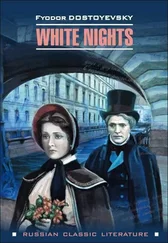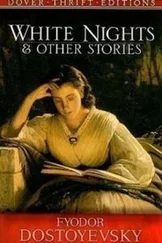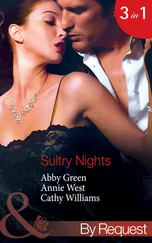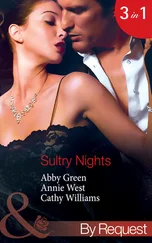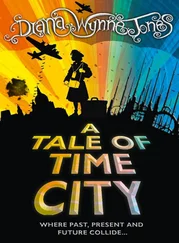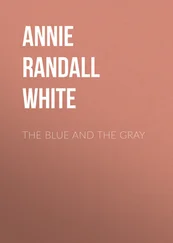Annie DeWitt - White Nights in Split Town City
Здесь есть возможность читать онлайн «Annie DeWitt - White Nights in Split Town City» весь текст электронной книги совершенно бесплатно (целиком полную версию без сокращений). В некоторых случаях можно слушать аудио, скачать через торрент в формате fb2 и присутствует краткое содержание. Год выпуска: 2016, Издательство: Tyrant Books, Жанр: Современная проза, на английском языке. Описание произведения, (предисловие) а так же отзывы посетителей доступны на портале библиотеки ЛибКат.
- Название:White Nights in Split Town City
- Автор:
- Издательство:Tyrant Books
- Жанр:
- Год:2016
- ISBN:нет данных
- Рейтинг книги:5 / 5. Голосов: 1
-
Избранное:Добавить в избранное
- Отзывы:
-
Ваша оценка:
- 100
- 1
- 2
- 3
- 4
- 5
White Nights in Split Town City: краткое содержание, описание и аннотация
Предлагаем к чтению аннотацию, описание, краткое содержание или предисловие (зависит от того, что написал сам автор книги «White Nights in Split Town City»). Если вы не нашли необходимую информацию о книге — напишите в комментариях, мы постараемся отыскать её.
Annie DeWitt
Granta
Believer, Tin House, Guernica, Esquire, NOON
BOMB, Electric Literature
American Reader
Short: An International Anthology
Gigantic
Believer
White Nights in Split Town City — читать онлайн бесплатно полную книгу (весь текст) целиком
Ниже представлен текст книги, разбитый по страницам. Система сохранения места последней прочитанной страницы, позволяет с удобством читать онлайн бесплатно книгу «White Nights in Split Town City», без необходимости каждый раз заново искать на чём Вы остановились. Поставьте закладку, и сможете в любой момент перейти на страницу, на которой закончили чтение.
Интервал:
Закладка:
I looked up the long narrow expanse ahead of us.
Wilson’s dying wasn’t the last of our troubles. It turns out our doctor was a sham. As happens with the travel of news, the Ranger had misheard his story. The doctor wasn’t a medic at all but rather a painter who’d attended art school in Rhode Island in the 70’s. After New York had failed him, he’d witnessed the demise of his first marriage to a young prostitute and had spoiled on the city altogether. He’d met a waitress in a diner one night on his way home from scoring some hash in the park. The waitress had dropped off nursing school and was thinking of getting back to the theatre where she belonged. That night the painter convinced her she belonged to him and the countryside. He moved her out to Fay Mountain to a simpler pace of life, away from the critics and the customers, where they could stare down their disappointments in each other’s company. The doctor painted seascapes and farmhouses. He sold them to local banks and hospitals. Callie had seen one hanging in the hall of the emergency room on the evening she’d gone to visit Wilson before he died, an oil painting of a single sailboat in a bay. That’s all our doctor amounted to, a lousy sailboat in the death wing a second-rate hospital. This explained the pheasants and his wife’s pregnancies. He was an artist and a layabout. He spent all day fucking. When he wasn’t fucking he was out painting the birds.
The news of our doctor’s demise was the pinnacle of the town’s disappointment. We’d lain waste our hopes on his good name.
That’s not the half of it.
A young farmhand had commandeered Cash’s heart. The girl was also a painter and something of a talent. According to the local paper, she’d kept up in a small studio in the center of town. For several months Cash had been begging Ada for a divorce so that he could marry the girl and do right by her talent.
The girl kept a stand at the flea market next to the cabinetmaker. Hers, Margaret said, was the watercolor which hung in the post. I had first glimpsed the girl out of the corner of my eye the day Father and I went to the flea market to purchase Baby. I recognized her months later by her picture in the paper. The picture ran in the Police Records section a few days after Wilson’s death. The article was short. According to the report, the police had been called out to Cash’s farm stand on several occasions that summer. The neighbors had heard people rowing late into the night. When the police had arrived there were holes in the plaster from where Ada had chased Cash around with the broom. The last time they’d had been summoned, Cash had been on his hands and knees cleaning Ada’s preserves off the floorboards when the police arrived. Cash too had his picture in the paper. A long vertical shot of his body which made him look even lonelier than he was. His face was beaten. His hands were covered in flies.
I had seen Cash’s girl working in the fields several times while biking to the farm stand to collect vegetables for dinner. She wore a large wicker bonnet such as the ones the itinerant works wore to shade their face. Father said he thought he’d seen her once sitting in the little office in back of the farm stand strumming on an old cigar-box guitar. “I’d recognize a good White Owl anywhere,” Father had said.
After a while it seemed everyone in the town had once known her. Ray had seen her taking numbers from the circulars he posted outside the barbershop. She’d sold Ruth a bag of peaches for her pie. Even the old half-blind couple who lived next door claimed to have seen the girl pushing a cart at the market. Margaret swore she’d caught her in the stacks at the library taking out books. The boys in town said she’d stop by the diamond in back of the schoolyard to watch the neighborhood kids toss the baseball around.
“Where you from, girl?” they’d say.
“Kansas,” she’d say.
Eventually she just said, “I’ve been around.”
It seemed odd that no one had found her out. Cash was a quiet man, Margaret reasoned with Mother. “He provided a blank slate,” she said. “It’s only habit to draw when there’s so much not knowing hanging around.”
Afternoons alone in the box that had once housed Father’s mower where Fender and I had spent so many afternoons, I used to imagine Fender and K and how we’d all once been. Fender no longer visited. The box was damp now and sagged in places from the changing of the seasons. Liden’s smut had blown off the walls.
The evening of Wilson’s funeral, the wind was so strong I could stand in the yard and smell the last of the season’s fruits where they sat rotting down the road in their crates. Otto had waited two seasons before spreading his son out over the earth. He’d let the fall go by and with the ground now frozen, the best he could do was toss Wilson around the field and let the wind take him where it thought he should settle. Wilson never was much of a walking man. This was as far as he’d travel, I supposed.
I wasn’t allowed to attend the funeral. Otto would be there and there was Mother’s suspicions and the idea, too, that children should not be exposed to death. Birdie needed a sitter.
Otto’s was the first car to return after the service. I was surprised to see his headlights turn the corner. After the sun set and I was sure Wilson was in the wind, I sat out on the portico watching the road waiting for my parents to return. As Otto’s headlights pulled into his drive I was struck by his burden. His Helene was still hanging on, her presence both absent and livid. Every night as he climbed the stairs toward his bed, leaving her alone on the pullout in the living room, I was sure Otto prayed he’d descend to find she’d relieved him.
Callie was first out of Otto’s car. She crossed in front of the headlights where he paused in front of the gate at the far end of his drive. She was wearing a suit. Something about the density of the fabric, the way it clung to her body, made her look thick around the middle. There was a bit more age on her. She was wearing a pillbox hat with a small white bird. It reminded me of something Granny Olga would’ve worn on the train from Schenectady. I recognized it as His Helene’s. The headlights cast a radius around Calli’s body illuminating the old tub in the south pasture, shining, boat-like in the yard.
It was only after Callie and Otto entered the house and the lights were down in their windows that I sat on the piano and flicked on the lamp. The piece was called “Confidence.” It opened as Sterling had once described it to me, with the image of a woman on a proscenium. A long operatic flute of sighs and runs. A few measures in, there was a rest. After the rest, Sterling’d said, the piece began in earnest with a brigade of troops marching. The thing he’d said about this piece is that it contains every emotion in a single page.
Afterward, I stood at the window. For a moment I wondered if Otto was watching, and then I remembered Callie and her pillbox hat.
The TV was nothing but news. I stared absently at the images. The men were at it again in the desert. Oil drums burned in the background. I wanted to understand how far the desert was from the hole in the earth where the Starlings had installed their pool. Where was it in relation? “The Gulf” felt too abstract. Outside, the patches of grass were thick. Long and downy, as though you could sink your fist into them and your pulse would disappear.
The moon was full. In the wind, when the light caught the reeds, the field beyond the marsh looked like a river. The sheen was so thick I thought it might hold me if I stepped out the window and put my weight on it.
The screen flashed to pictures of troops in faded fatigues.
“Captain Miller says anyone who isn’t scared there is a fool. Is everybody scared?” Jennings said to the correspondent. I felt as though he was asking me directly.
Читать дальшеИнтервал:
Закладка:
Похожие книги на «White Nights in Split Town City»
Представляем Вашему вниманию похожие книги на «White Nights in Split Town City» списком для выбора. Мы отобрали схожую по названию и смыслу литературу в надежде предоставить читателям больше вариантов отыскать новые, интересные, ещё непрочитанные произведения.
Обсуждение, отзывы о книге «White Nights in Split Town City» и просто собственные мнения читателей. Оставьте ваши комментарии, напишите, что Вы думаете о произведении, его смысле или главных героях. Укажите что конкретно понравилось, а что нет, и почему Вы так считаете.
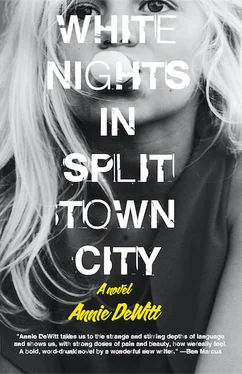
![Элизабет Ленхард - Свидание со смертью[Date With Death]](/books/79651/elizabet-lenhard-svidanie-so-smertyu-date-with-dea-thumb.webp)



